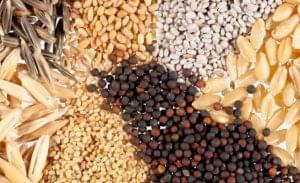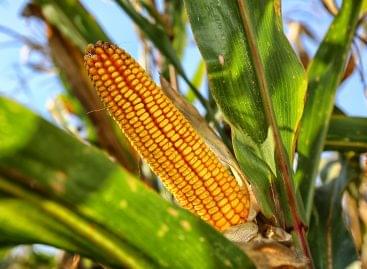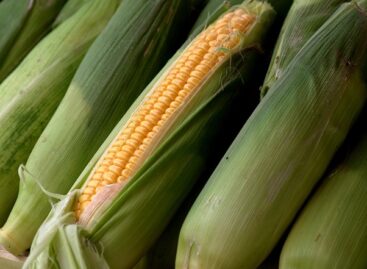The seed sector is preparing for the sowing of winter cereals starting in September
The biggest field work of the autumn, the sowing of cereals, will begin within weeks. According to the information of the Seed Association Interprofessional Organization and Product Council, the seed sector has sufficient quantities of good quality seeds at the disposal of farmers. This year, the organization announced a net indicative price of 171 thousand forints per ton for winter cereal seeds.
 A lot of work will soon begin in domestic arable lands: the sowing of winter cereals will begin in September. In the case of spring-sown crops, such as corn, the production risk increases due to weather difficulties, which directs attention to the production of autumn-sown crop species, primarily winter cereals. According to data from the National Chamber of Agriculture, last year farmers sowed winter wheat on 976 thousand hectares, winter barley on 275 thousand hectares, and triticale on 72 thousand hectares. Winter wheat has overtaken corn as the number one arable crop in Hungary. According to the association, farmers may continue to shift away from corn in the future. Part of the main feed crop, corn, may be replaced by alternative crops such as sorghum or barley, which is highly protein-rich and easily digestible and is perfectly suited for cattle feed.
A lot of work will soon begin in domestic arable lands: the sowing of winter cereals will begin in September. In the case of spring-sown crops, such as corn, the production risk increases due to weather difficulties, which directs attention to the production of autumn-sown crop species, primarily winter cereals. According to data from the National Chamber of Agriculture, last year farmers sowed winter wheat on 976 thousand hectares, winter barley on 275 thousand hectares, and triticale on 72 thousand hectares. Winter wheat has overtaken corn as the number one arable crop in Hungary. According to the association, farmers may continue to shift away from corn in the future. Part of the main feed crop, corn, may be replaced by alternative crops such as sorghum or barley, which is highly protein-rich and easily digestible and is perfectly suited for cattle feed.
Summarizing the most important experiences of the 2024/25 seed production season, the association highlighted that, similarly to last year, there was a large difference between the most important wheat-producing areas in Transdanubia and the Great Plain in terms of rainfall from sowing to almost harvesting. The expected average yield for winter wheat for seed is expected to be in the range of 6.5-7.0 t/ha. The national average yield of winter barley, which is in the range of 6.8-7.2 tons/ha, certainly exceeds the average yield of winter wheat. In the case of triticale, the actual harvest average is expected to be around 6 t/ha. Regarding quality problems, it was found that the appearance of fungal diseases did not have to be counted on this year, but more intensive protection against pests was required.
In the case of winter barley, the size of the propagation area decreased slightly this year compared to last year, but the demand for metal-sealed seeds can still be safely met. The expected stocks of winter wheat, winter barley and triticale seeds provide a professionally acceptable renewal opportunity of over 45%. The amount of old stocks is minimal, slightly exceeding the previous year, but does not have a significant impact on the stocks of new crops.
Related news
NAK: new variety trial data helps corn producers
🎧 Hallgasd a cikket: Lejátszás Szünet Folytatás Leállítás Nyelv: Auto…
Read more >GOSZ-VSZT-NAK variety trial: objective data helps corn producers choose varieties for the nineteenth time
🎧 Hallgasd a cikket: Lejátszás Szünet Folytatás Leállítás Nyelv: Auto…
Read more >Related news
SPAR is preparing for an Easter rush: it is filling its stores with 570 tons of smoked meat products
🎧 Hallgasd a cikket: Lejátszás Szünet Folytatás Leállítás Nyelv: Auto…
Read more >









